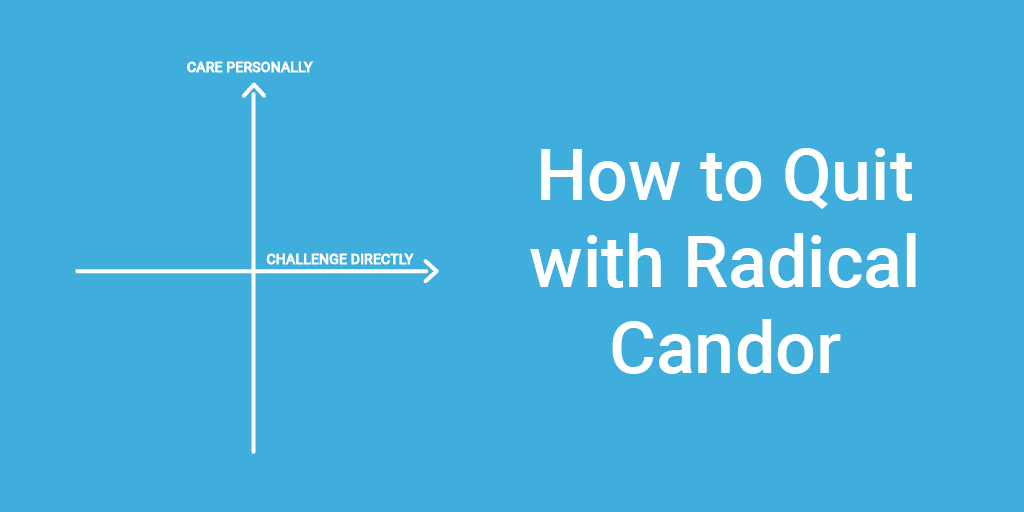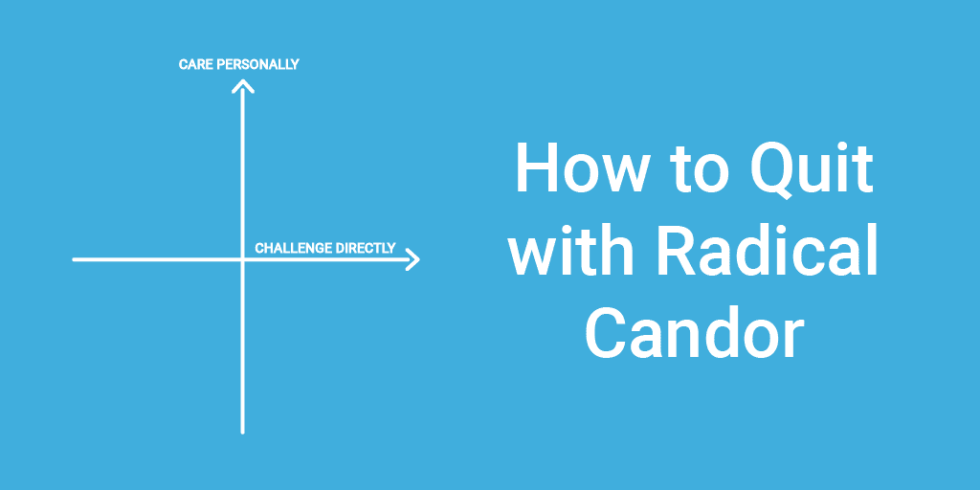Kim Scott is the author of Radical Candor: Be a Kick-Ass Boss Without Losing Your Humanity and Radical…
Quitting with Radical Candor
As we’ve mentioned in a couple of podcast episodes (Ep 13: Help! My Boss is a Micromanager and Ep 8: How to Give Feedback to Your Boss), sometimes no matter how hard you try, no matter how much great feedback you solicit and give, a job just isn’t going to work out, and you’re going to have to take the advice I got from Gretchen Rubin:
Don’t forget to quit.
Quitting can be really hard. Maybe you’ve got a team that you feel loyal to, or you’ve invested a lot in the company, or you are worried what will happen next. But it’s really important to leave positions that are making you miserable and aren’t going to get better.

If you do decide to quit, keep the ideas behind Radical Candor in mind — Care Personally and Challenge Directly. Here’s how they apply:
1. No surprises.
When you quit, you’re doing two things–moving away from one thing and towards another. Too often, people have remained quiet about what they are not happy about because they are afraid of being fired if they speak up. But, if you’ve decided to quit anyway, why not speak up about what’s bothering you? Maybe there’s a solution and you won’t have to quit!
A good boss gives feedback along the way, and so doesn’t give a poor performance review or fire somebody out of the blue. Similarly, it’s considerate to give your boss some indication of what’s wrong so that they have an opportunity to fix it before you quit. Make sure it doesn’t sound like you’re making ultimatums. Just be clear about what’s driving you away from this job, if there are things. If it’s purely a matter of moving towards something different, explain that clearly.
2. Express gratitude.
Something has been good about this job. Think about the things you are grateful for, and give voice to them. Don’t just share this with your boss, share it with your colleagues as well. When somebody quits, it makes everybody wonder if they should be quitting too. Don’t leave in a way that makes everyone feel lame for staying. You can alleviate this discomfort by focusing on all the things that you appreciated about the job and your colleagues. If it was a hard decision to leave, don’t be afraid to say so.

3. Keep in touch.
A few weeks after you leave, send a note, or if it seems comfortable, go have a coffee or lunch or drinks with people from your old team. You spent a lot of time with these people, and, I hope, developed some kind of personal relationship with them. It can be disorienting if it feels like you dropped off the face of the earth. It’s hard to believe you “cared personally” if you never talk to the people again after you’re no longer working together.
4. Don’t “poach” indiscriminately.
When you leave one job, there may be one or two people with whom you have an especially close relationship and who are likely to “follow” you. That’s to be expected. But don’t gut your former company. Don’t start reaching out to people you don’t know all that well and trying to hire them away.
I hope these tips are helpful in making quitting a little less painful for you and the team you’re leaving. If you have more questions, feel free to reach out in the comments below, or more privately here 🙂



